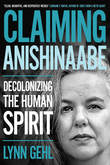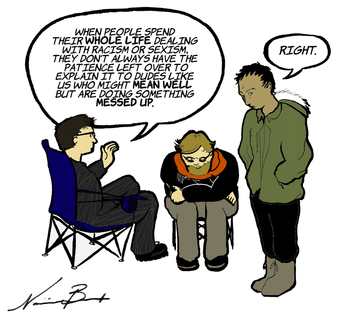|
Critically thinking people in Peterborough have been working long and hard on issues of social justice from the perspective of multiple intersectional oppressions, meaning colour, gender, disabilities; yet it appears that not much progress is being made. Of course this has to do in large part with oppressive power, but it also has to do with a lack of critical thinking about the limitations of the Charity Model of social justice. While compassion is valued and needed, the Charity Model is for the most part a back-end focus to social justice issues and thus not capable of addressing the deeper structural issues oppressed people face. In short, back end compassion alone is not enough; front end solutions are needed. Further, oppressed people want and need more than being patronized with small tokens of charity at the back-end. They also want more than being someone’s “feel good moment” where they are offered charity so a privileged person can feel that they did a good thing at Christmas time. Yes, this actually continues to happen. It is often said that social justice awareness, understanding, knowledge, wisdom, and actions must emerge from the location of intersectionally oppressed people. This is mostly true as they embody, live, and have much of the knowledge of oppression. But it is also said there is the need to embrace genuine critical thinkers to guide processes of social justice efforts to a real and more meaningful place. Unfortunately critical thinking is also not well understood where as a result sometimes a “token critical thinker” is relied on when addressing social justice issues. Critically thinking (with some criticizing too) about critical thinking?
When it comes to addressing social justice issues, critical thinking is a process of thinking deeply about the limitations of society's oppressive structures such as employment standards and requirements, standard operating procedures, policies, and legislation that are causing certain people from living a good life. Critical thinking is also a way of being and acting that challenges, at the front end, oppressive structures for the purpose of serving people. Critical thinking and acting on it is much more than relying on the Charity Model at the back-end. Here is a short video: https://www.youtube.com/watch?v=ZLyUHbexz04 What has caused me to think about this issue of the limitations of the Charity Model and the need for genuine critical thinking in social justice? Recently a video was posted in a facebook group titled “Carol's Place” that was clearly rooted in the Charity Model of social justice. In this video a privileged person was walking around a city offering small tokens to homeless people thinking he was doing a good thing when in fact what he was really doing was exploiting the homeless for the purpose of his own “feel good moment”. Sadly a few members of the Peterborough community clicked like on this posting thus endorsing the Charity Model. This small example of a misplaced facebook posting is a sure indication that some people in Peterborough remain stuck in a Charity Model and further, lack the gift of critical thinking. (I have chosen not to post this link here as I do not want to give it anymore currency than it is already gaining.) It is my thought that the Charity Model of social justice emerges from: the inability to really value where structures of oppression come from; the inability to really value that oppressed people are indeed consciously oppressed through standard operating practices, policies, and laws; and the inability to perceive that Indigenous people do indeed have a valid knowledge system and paradigm that is being actively thwarted and denied by the government of Canada. As a result, sometimes the Charity Model marches forward only addressing back-end solutions and failing to address the root causes of structural oppression. Here are two insightful videos that address the deeper issues with the Charity Model. In the second video the speaker uses the anger that exists between “the haves” and “the have nots” to perform what he knows. As a man he is more easily afforded the right to be mad. https://www.youtube.com/watch?v=0Wmtjnp-7wg https://www.youtube.com/watch?v=telgvKBdY9E The City of Peterborough can do better.  Lynn Gehl, Ph.D. is an Algonquin Anishinaabe-kwe from the Ottawa River Valley. In 2017 she won an Ontario Court of Appeal case on sex discrimination in The Indian Act, and is an outspoken critic of the Algonquin land claims process. Recently she published Claiming Anishinaabe: Decolonizing the Human Spirit. You can reach her through, and see more of her work, at www.lynngehl.com
1 Comment
|
|
To subscribe to Lynn's Blog: click here
To subscribe to Lynn's Newsletter: click here To follow Lynn on her Public Facebook Page: click here To subscribe to Lynn's YouTube channel: click here To book Lynn as a speaker: click here To contact Lynn/License her work: click here Copyright Dr. Lynn Gehl, 2024 All Rights Reserved
|

 RSS Feed
RSS Feed
